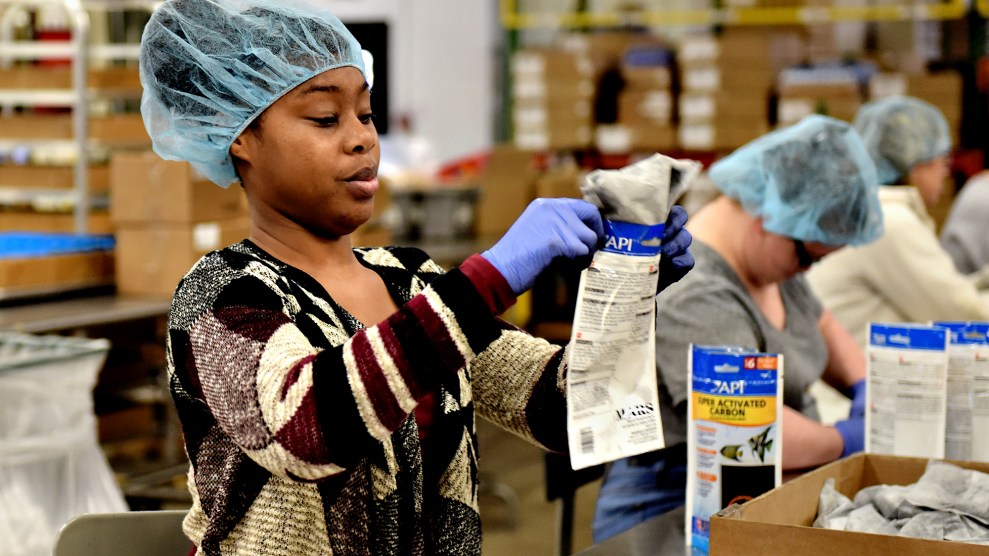Article created by the The Century Foundation.
One of the most worrisome aspects of immigration for many Americans is that the immigrants take away jobs from Americans. A common response by defenders of immigration is that immigrants’ jobs are those that no American would want. This explanation is bogus. We recall when Americans worked in restaurant kitchens and operated dry cleaning establishments—in some parts of the United States they still do. What sort of quirky taste in jobs can explain how in other regions, almost no one but immigrants take such jobs? The answer is not to be found in regional variation in American culture; the answer stems from wage rates and from competition in labor markets.
Immigrants do indeed compete with Americans for jobs, but that does not mean that they take the only jobs around. As today’s unemployment rate of 4.7 percent illustrates, there are a lot of jobs; more than 95 percent of those who recently have sought jobs have them. In today’s U.S. labor markets, jobs are not the problem; the real issue is quality. A disproportionate share of immigrants is concentrated in the low-skill end of the labor market, where they compete with the small proportion of American workers who are similarly unskilled, driving down the relative wages of this segment of the labor force.
Still, absent restrictions, those people who want work, do work. Their jobs may be dangerous, low-paying, or unreliable, but people manage to occupy themselves to get food and money. The problem is not finding a job, it is finding a good job.
The quality of employment opportunities depends on what workers have to work with. People who are intelligent, well trained, resourceful, and agreeable have many more opportunities than people who offer only raw labor. Regions that have natural resources, roads, ports, or factories also have the materials that bolster opportunities for workers.
Immigrants bring muscle power. They also bring skills, intelligence, entrepreneurial ideas, and a few bring capital. Immigrants help create opportunities as well as compete for them.
Implicit in the notion that immigrants take jobs from Americans is the idea that there are a fixed number of jobs and if someone gets a job, someone else is left without one. But the job market is not a game of musical chairs. The job situation may look like a cafe, with some easy chairs, some places at the bar, and a fixed number of seats overall, but that is an illusion. Increasingly, good seats are not found by chance; they go to people with more skills. And the number of seats is not fixed. Or rather, the number of establishments offering seating is always changing.
The problem of finding a good job is closer to finding a partner at a dance than finding a good seat in Starbucks. Immigrants represent new competition for the most attractive partners, but they also represent new partners. Nobody ever can see more than a small part of the crowd, but for someone with a lot to offer, the bigger crowd may offer more opportunities. For someone who always finds it tough to match up, life may become harder as the party gets bigger. In either case, it is supply and demand for various characteristics in the competition for partners (or jobs) that determines ultimate outcomes, together with luck, and connections.
If there were a fixed number of jobs in each country then we could easily predict which countries would have good job opportunities and which bad. Countries with relatively few inhabitants would be great while densely populated countries would be bad. Russia would be job heaven and the Netherlands, job hell. That is not the way the world works. Overwhelmingly, people who need work find some way to make a dollar. Even with job-killing laws in some countries, even with political and economic uncertainties, people who look for work end up doing something, no matter where they live. What ultimately matters for the quality of their livelihoods are the characteristics of the job seekers themselves and the resources—skills and tools—they have to work with.
Immigrants do not take jobs away from Americans. Depending on what sorts of skills, capital, and entrepreneurial ideas they bring with them, they may add to opportunities for others or they may drive down the returns to other’s labor. With or without immigrants, the challenge is to provide every American with high quality skills and to nail down an adequate floor under those who do not manage to compete effectively.












